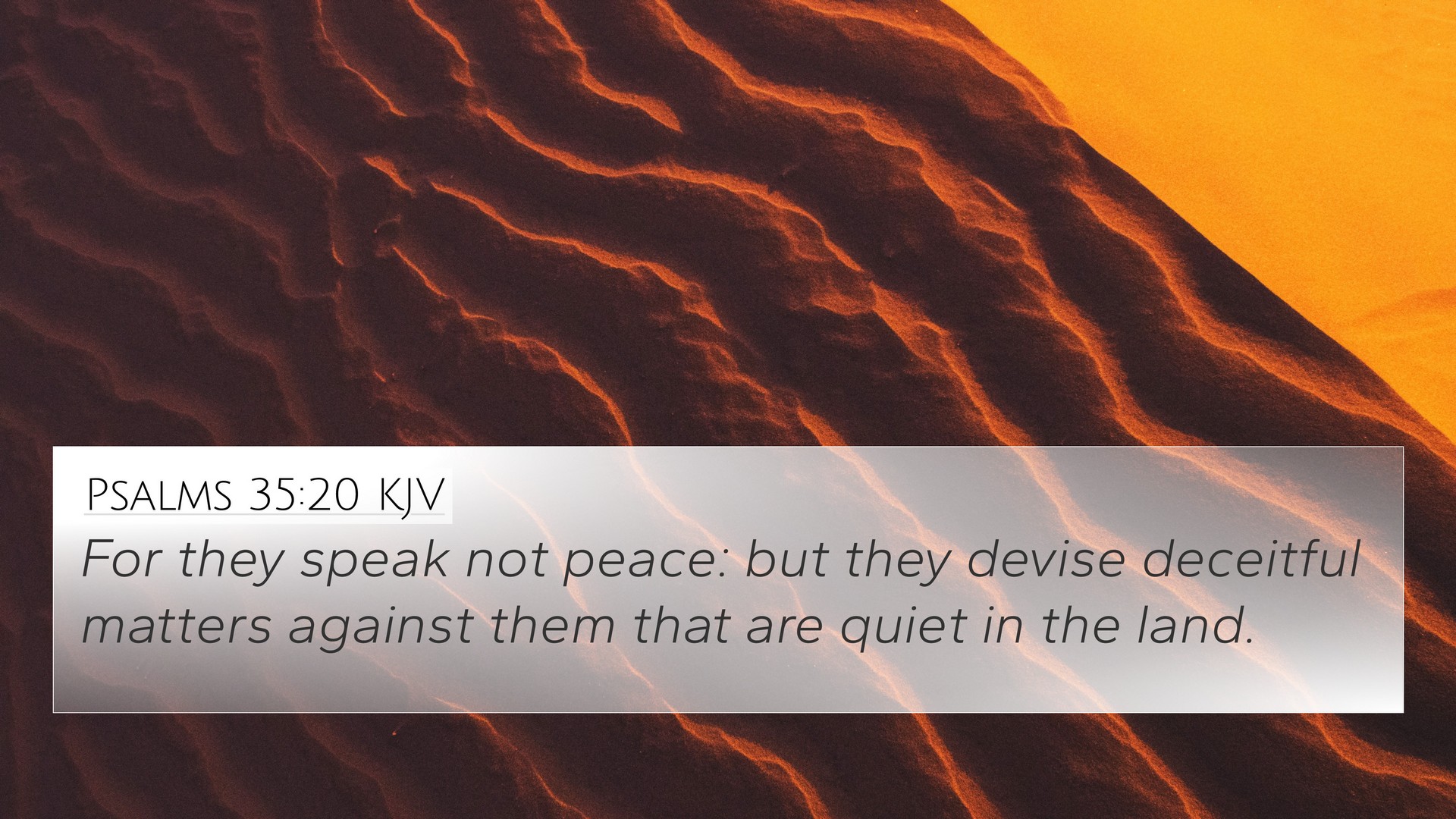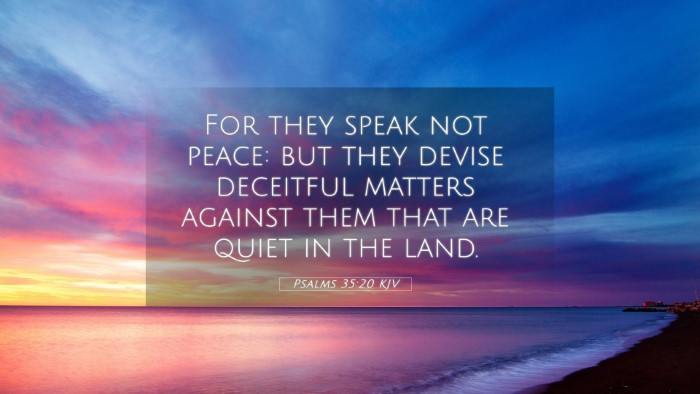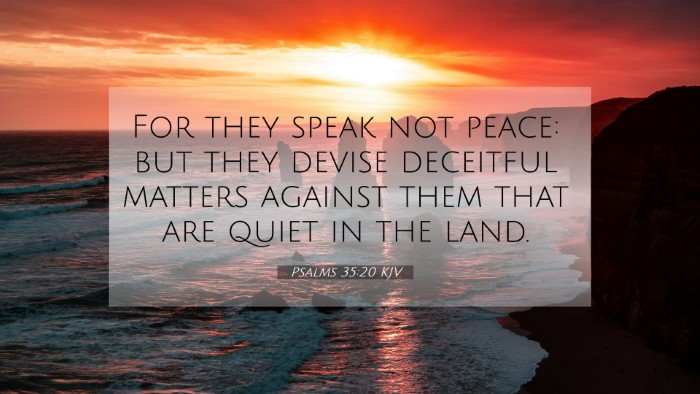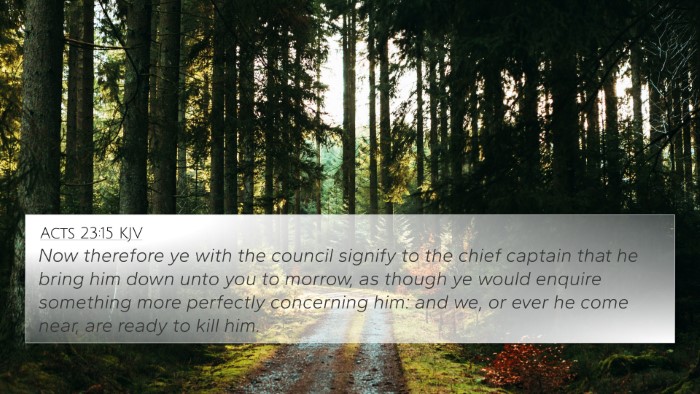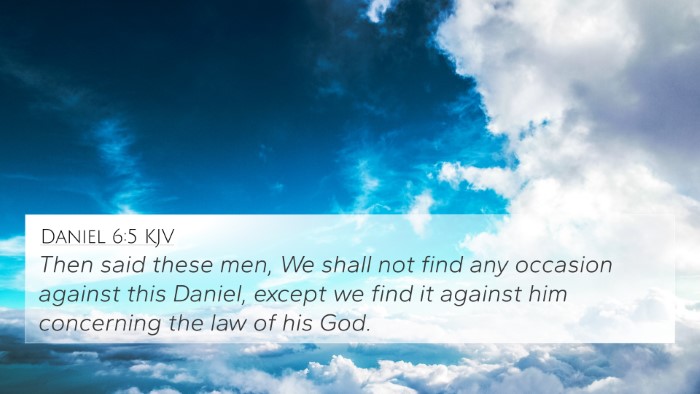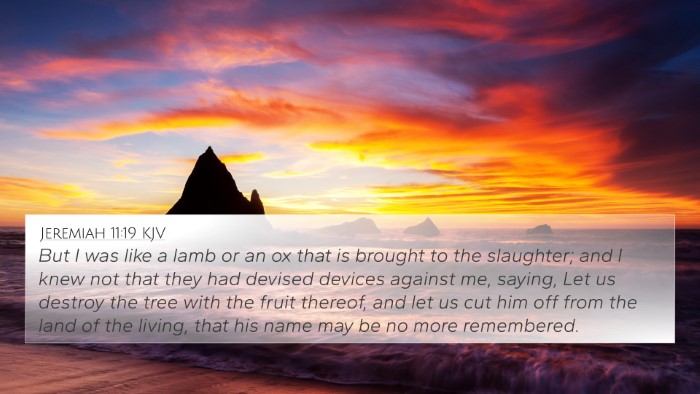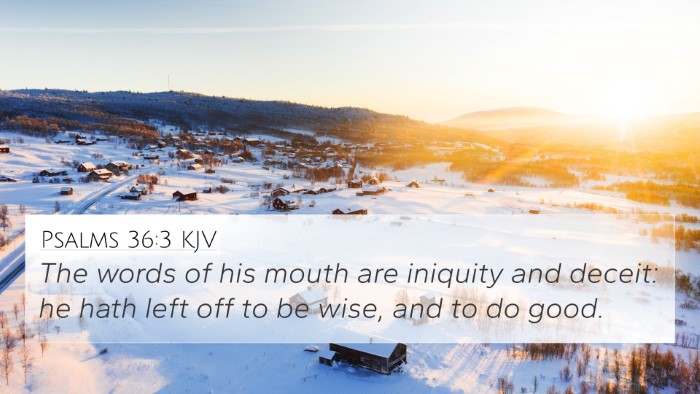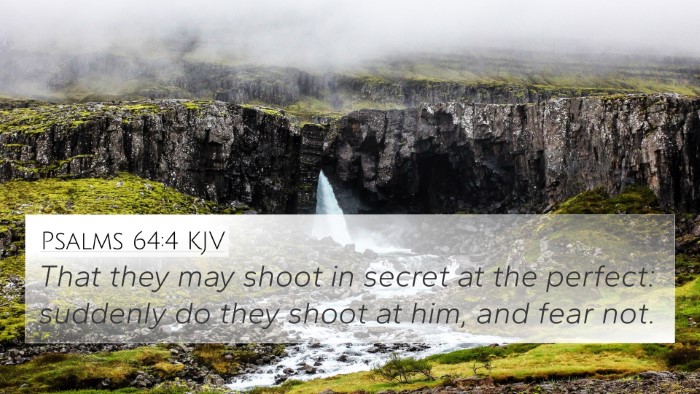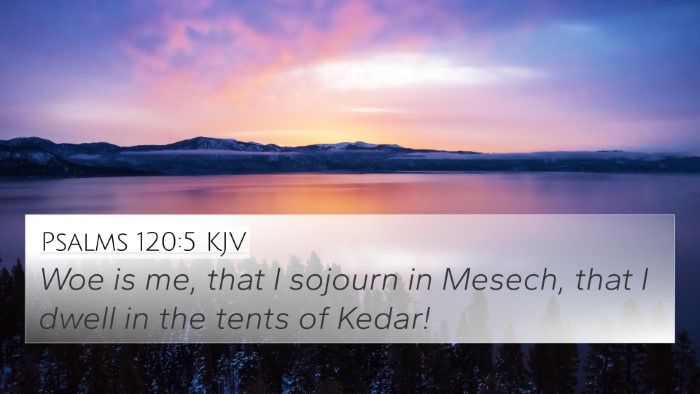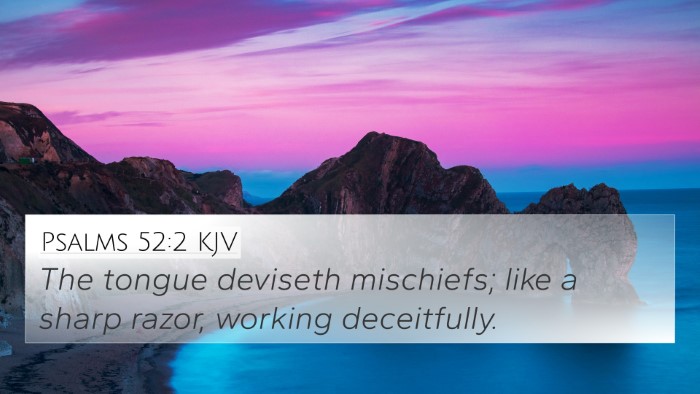Understanding Psalms 35:20
The verse Psalms 35:20 states: "For they speak not peace: but they devise deceitful matters against them that are quiet in the land." This verse captures the essence of conflict arising from deceit and enmity, particularly in the context of the faithful who are peaceful and unsuspecting.
Historical Context
Psalms 35 is attributed to David, who often faced opposition from those who sought his harm. This particular verse reflects the struggles faced by the righteous in a world filled with deceitful people. The cultural milieu of ancient Israel, rife with political and personal rivalries, adds depth to the understanding of this verse.
Interpretation from Commentaries
-
Matthew Henry:
Henry emphasizes that the enemies of David are not merely critics but are actively plotting against him. Their lack of peace signifies their disruption not only of David's life but of the general tranquility of the land. The mention of deceitful matters indicates the maliciousness of their intentions.
-
Albert Barnes:
Barnes notes that those who devise deceitful matters are full of schemes that go against the welfare of the quiet individuals. It highlights a divide between aggressors and victims, showing that peace is often met with hostility from those who thrive on chaos.
-
Adam Clarke:
Clarke offers insights into the psychological state of the oppressors. He states that they plot in secret and their schemes are aimed particularly at those who are innocent and peaceful. This thematic dichotomy between peace and treachery is central to understanding the dynamics at play in this psalm.
Thematic Connections
Psalms 35:20 serves as a poignant reminder of the trials of the faithful. The themes of conflict, deceit, and the quest for peace resonate through scripture:
- Psalm 34:14: “Depart from evil, and do good; seek peace, and pursue it.” This encourages the pursuit of peace in the face of adversity.
- Proverbs 12:20: “Deceit is in the heart of those who devise evil, but those who plan peace have joy.” This offers a comparative peace in actions versus intentions.
- 1 Peter 3:11: “Let him turn away from evil and do good; let him seek peace and pursue it.” Echoing the sentiment of Psalms 35, it stresses the virtue of maintaining integrity amidst hostility.
- Isaiah 59:4: “No one calls for justice, nor does any plead for truth. They trust in empty words and speak lies; they conceive troubles and give birth to iniquity.” This verse depicts the societal moral decay similar to that in Psalm 35:20, where justice is absent.
- Lamentations 3:47: “Fear and a snare have come upon us, desolation and destruction.” This relates to the feelings of despondency among those who wish to live quietly, yet are met with oppression.
- James 4:1: “Where do wars and fights come from among you? Do they not come from your desires for pleasure that war in your members?” This addresses the heart of conflict found within individuals, leading to external strife.
- Matthew 5:9: “Blessed are the peacemakers, for they shall be called children of God.” Highlighting the value of striving for peace, contrasts with the turmoil depicted in Psalms 35:20.
Cross-Referencing the Themes
This verse encourages believers to understand and recognize the patterns of deceit and conflict that traverse scripture.
- Philippians 3:18-19: Discusses those who live as enemies of the cross of Christ and the fate that awaits them.
- Matthew 10:16: Jesus acknowledges sending His followers as sheep amid wolves, which connects with the theme of peaceful yet vulnerable presence amidst hostility.
- John 15:18-19: Jesus speaks about the world hating His followers, emphasizing the conflict between true believers and those opposed to God’s message.
Applications and Reflections
The message of Psalms 35:20 is timeless; it invites believers to reflect on their responses to deceit and hostility. The emphasis on being 'quiet in the land' can be seen as a call to foster peace without compromising one's integrity.
In light of the current times, this verse serves as a reminder for Christians to be vigilant against the hidden plots of those who might deceive. The focus should remain not only on self-defense against such deceitful matters but also on embodying the peace that reflects Christ's teachings.
Tools for Exploring Cross-References
For deeper exploration of cross-referencing Biblical texts, consider utilizing:
- Bible concordance: A tool to locate scripture based on themes or keywords.
- Bible cross-reference guide: Helpful for finding similar verses and themes across the text.
- Online databases for Bible cross-references: Utilizing technology to enhance understanding of inter-Biblical dialogues.
Conclusion
Psalms 35:20 encapsulates the perpetual struggle between good and evil, peace and turmoil. By understanding this verse in the context of related scriptures, believers can cultivate a deeper theological insight into the nature of their faith, amidst worldly strife. This understanding guides their responses and positions them as peacemakers in a conflicted world.
